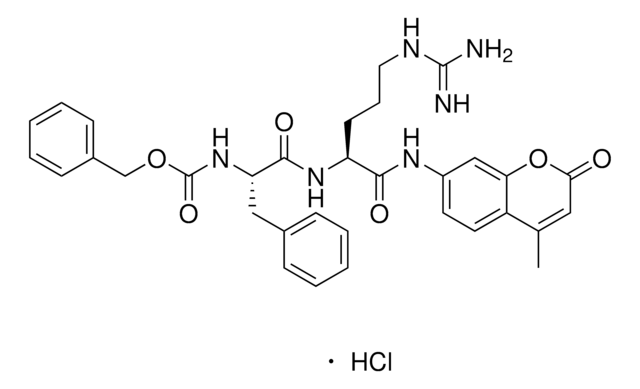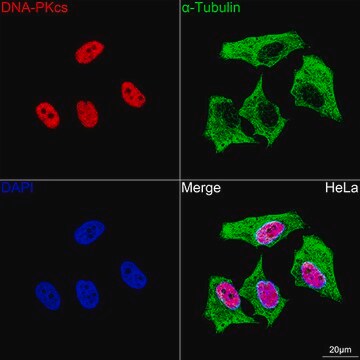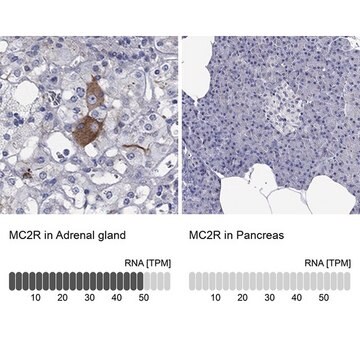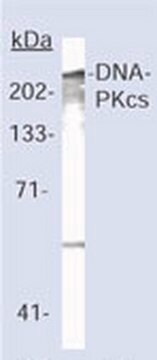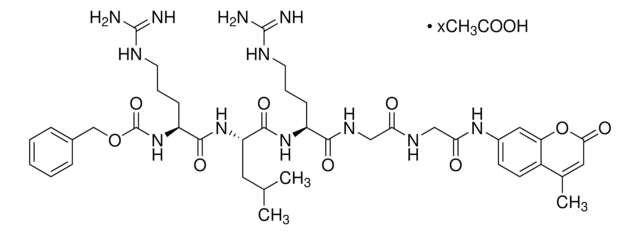MABC1236
Anti-DNA-PKcs Antibody, clone 3A9.1
clone 3A9.1, from mouse
Sinônimo(s):
DNA-dependent protein kinase catalytic subunit, DNA-PK catalytic subunit, DNA-PKcs, DNPK1, p460
About This Item
Produtos recomendados
fonte biológica
mouse
Nível de qualidade
forma do anticorpo
purified immunoglobulin
tipo de produto de anticorpo
primary antibodies
clone
3A9.1, monoclonal
reatividade de espécies
human
técnica(s)
western blot: suitable
Isotipo
IgG1κ
nº de adesão NCBI
nº de adesão UniProt
Condições de expedição
ambient
modificação pós-traducional do alvo
unmodified
Informações sobre genes
human ... PRKDC(5591)
Descrição geral
Especificidade
Imunogênio
Aplicação
Apoptosis & Cancer
Qualidade
Western Blotting Analysis: 0.5 µg/mL of this antibody detected DNA-PKcs in 10 µg of K562 cell lysate.
Descrição-alvo
forma física
Armazenamento e estabilidade
Outras notas
Exoneração de responsabilidade
Não está encontrando o produto certo?
Experimente o nosso Ferramenta de seleção de produtos.
recomendado
Código de classe de armazenamento
12 - Non Combustible Liquids
Classe de risco de água (WGK)
WGK 1
Certificados de análise (COA)
Busque Certificados de análise (COA) digitando o Número do Lote do produto. Os números de lote e remessa podem ser encontrados no rótulo de um produto após a palavra “Lot” ou “Batch”.
Já possui este produto?
Encontre a documentação dos produtos que você adquiriu recentemente na biblioteca de documentos.
Nossa equipe de cientistas tem experiência em todas as áreas de pesquisa, incluindo Life Sciences, ciência de materiais, síntese química, cromatografia, química analítica e muitas outras.
Entre em contato com a assistência técnica